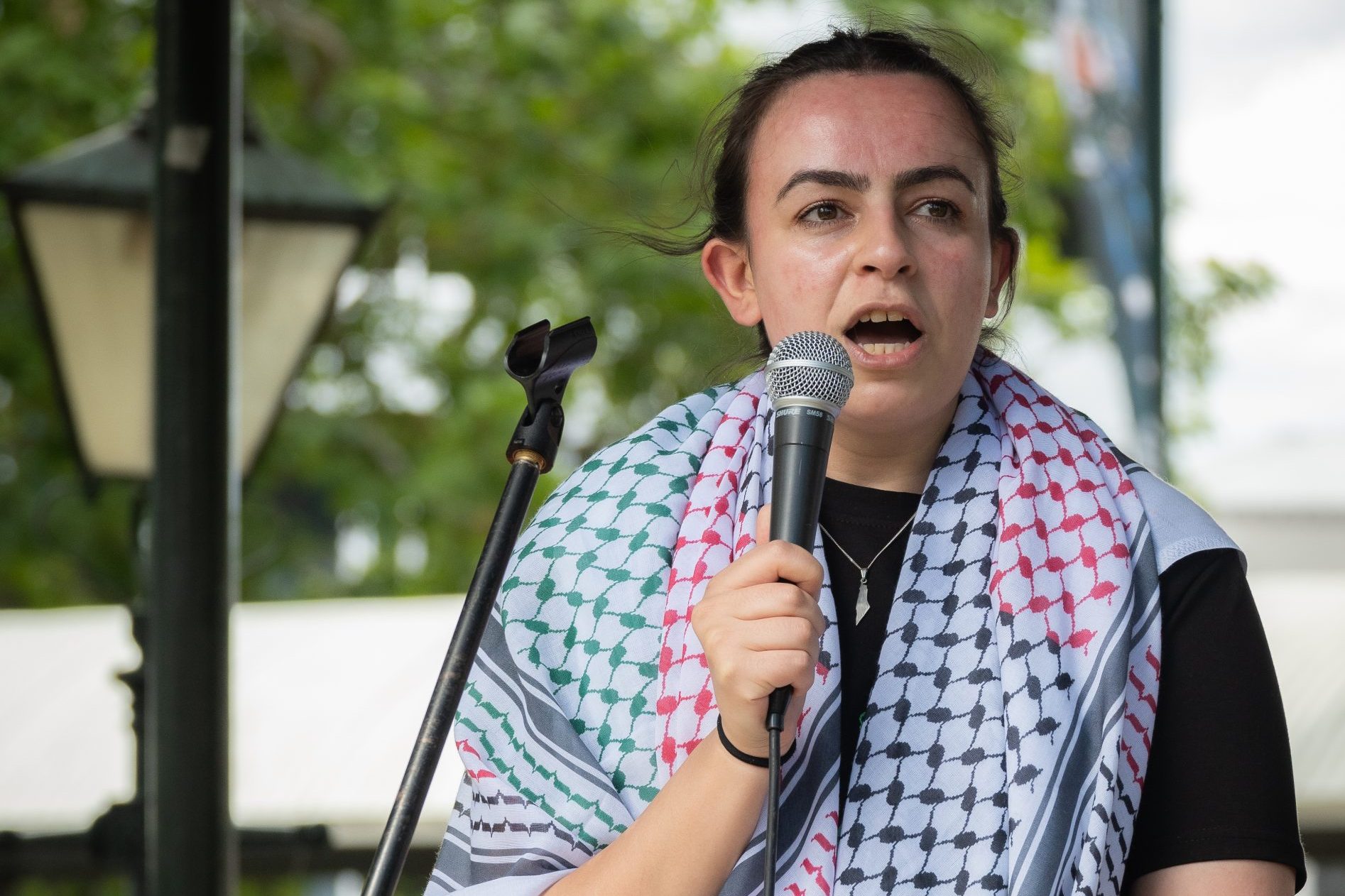Minister of Immigration Erica Stanford said there wasn’t a dedicated visa pathway for those fleeing Palestine because there was no guarantee New Zealand could get them out of the country. The Palestinian activist Rinad Tamimi said that this didn’t make sense; just yesterday, her friend Mohammed managed to get his family safely into Egypt.?
Two weeks after the first explosions bellowed through eastern Ukraine, National MP Erica Stanford criticised the Labour government for ※working at a glacial pace§ to set up a visa pathway for the families of Kiwis stuck in the war zone.
※Other countries have been able to fast-track family members fleeing the war, yet New Zealand is lagging behind,§ she said at the time.
Within a week, a special visa category was announced to aid this demographic. As of March 11, 2024, 1879 of these visas had been granted, each visa a lifeline.?
Seven months after the first Israeli missiles hit Gaza, Stanford found her position reversed. On March 21, 2024, the now-Minister of Immigration faced questions from the Green MP Ricardo Men谷ndez March about the Government’s decision to not issue a special visa category for Palestinian family members stuck in Gaza.?
Men谷ndez March asked Stanford: ※Which option would enable more lives to be saved: the status quo or creating a special humanitarian visa to reunite family members of Palestinian New Zealanders with those that are still in Gaza?§
In the resulting discussion, Stanford said the current conflict differed from the one in Ukraine, with the major difference being that people in Ukraine ※were able to get on a plane and get to New Zealand§. The same could not be said for those in Palestine, she said.
To issue a special visa for anyone in this situation would risk giving them ※false hope§, she said. ※It is not a visa issue, it is a border issue.§

Since October 7 last year, the Government has been processing visitor visas for family members of New Zealanders currently in Palestine. This visa pathway is one of many regularly offered by Immigration New Zealand.?
As of the conversation between Men谷ndez March and Stanford, INZ had received 71 applications from Palestinian nationals, of which 15 were ※from people who, to the best of our knowledge, may have been in Gaza at the time of their application or shortly before lodging§, said Stanford. ※Many of the visas that we have issued are for people who are still waiting to get out and cannot get out.§
Every week, she said, ※I ask for updates on the visas that have been issued to Palestinian nationals. I ask for an update on each individual family situation so that I can see who has been issued a visa and who has been able to leave.§ But a visa does not equate to an exit strategy from the situation on the ground, which Stanford described as an ※unimaginable humanitarian crisis§.
Stanford mentioned that Canada - the only Western country to offer this specific visa - ※has not been able to get people out§. The Canadian system has been criticised for being unnecessarily difficult to understand, and invasive to the point of asking applicants to list any scars on their body.
US officials have been discussing the possibility of letting in Palestinian refugees, so long as they meet another series of eligibility criteria. US President Joe Biden would neither confirm nor deny those considerations.
As reports of a possible American lifeline swirled, Rafah, the gateway to the Egyptian border, braced for an attack. But at the same time, Hamas leaders prepared to meet Israeli representatives for peace talks in Egypt. Set against the backdrop of mass graves uncovered outside two hospitals - some bodies with their hands still tied - the talks offer the slightest glimmer of hope. But, as Stanford repeatedly clarified to Men谷ndez March, the last thing she wanted to dispense was ※false hope§.?
But false hope is better than no hope at all, according to Rinad Tamimi, the mother and Palestinian immigrant at the heart of Dunedin Justice for Palestine. Her family moved here in 2008 thanks to a scholarship from Otago University, but her grandparents and extended family are still in the West Bank. Rinad said they were lucky to be in Hebron, where things were a bit safer, but ※we worry about them every day§. Her mother, Mai, is trying to get her parents to New Zealand, but the process is expensive and complex.?
To Rinad, a visa without an exit (what the minister called ※false hope§), would be ※better than nothing§. But the point was moot, said Rinad, because ※people actually can get out§. They’re getting out over the southern border, through Egypt, after paying thousands of dollars in ※fees§, because ※when there’s a war # everyone tries to benefit§. It’s not an easy process, and it’s not fast. ※You pay the money, you put your name down§ and then you wait until ※whenever there’s a space for you§.
Rinad said that the minister’s argument that this was a border issue, not a visa issue was perplexing. ※It’s a really weak argument to say that they can’t grant them the visas because they can’t leave,§ explained Rinad, ※because they can [leave] # like, where are you getting that information from?§?
Creating an emergency visa pathway would enable these family members to avoid queuing alongside any other prospective visitor visa applicant, and would signal a recognised sense of urgency from the New Zealand Government. And even if escape is hidden behind steep fees, glacial queues and armed guards, having a visa waiting on the other side ※just needs to happen§.
At this point, Rinad said, ※I don’t know what else they’re waiting for.§?
Newsroom did not receive a response from Erica Stanford.


